News
Presidential Expert Committee Submits Final Report on Public Service Salary Increases
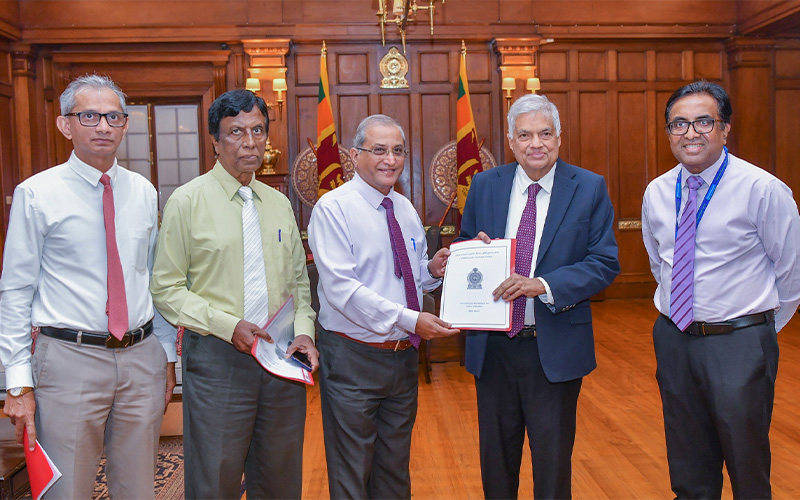
The final report of the Presidential Expert Committee, which includes recommendations for increasing public service salaries and allowances effective January 1, 2025, was presented to President Ranil Wickremesinghe on Tuesday (03) at the Presidential Secretariat by the Committee Chairman, Udaya R. Seneviratne, along with other committee members.
Chairman Udaya R. Seneviratne stated that the report was prepared in alignment with the conditions outlined in the Memorandum of Understanding (MoU) between the Government of Sri Lanka and the International Monetary Fund (IMF). It was developed with the agreement of the Treasury and the approval of the Cabinet to ensure the necessary financial allocations.
The expert committee on restructuring public sector salaries and allowances was appointed by President Ranil Wickremesinghe on June 12, 2024, with the approval of the Cabinet. The committee comprises 10 members from both the public and private sector.
The committee chaired by former Presidential Secretary Udaya R. Seneviratne included several key members: Jude Nilukshan- Director General of the Department of National Budget, Hiransa Kalutanthri- Director General of the Department of Management Services, S. Aloka Bandara- Director General of Combined Services, H.A. Chandana Kumarasinghe- Director General of Establishments, Dr. Terence Gamini de Silva- retired Deputy Director General of the Ministry of Health, Duminda Hulangamuwa- Chairman of the Ceylon Chamber of Commerce, Chandi H. Dharmaratne- Chief Public Officer of BCS International Technology PTY LTD, Isuru Thilakawardena-Deputy General Manager (Human Resources) of Commercial Bank and G.L. Varnan Perera, Additional Secretary to the President.
The final report, which was to be submitted within three months, presents an 18-point policy outlining the reforms to be implemented in the public service and the proposed salary increases.
Speaking on the occasion, President Ranil Wickremesinghe stated that the committee’s recommendations would be implemented through the Ministry of Finance. He expressed his intention to increase the income of all as outlined in the report’s recommendations.
President Ranil Wickremesinghe further elaborated;
Following the last economic collapse, numerous measures were necessary to boost government revenue. During this challenging time, public sector employees faced significant burdens, yet they continued to perform their duties diligently. As a result, the Gross Domestic Product (GDP) of the country increased in 2023, leading to an improvement in the overall economic situation.
With the funds acquired in 2023, we implemented “Aswesuma” program to assist low-income individuals. As the economy continued to develop in 2024, our focus shifted to restructuring public sector salaries and allowances.
In line with this, the report prepared by Udaya R. Seneviratne and other committee members has been submitted. I intend to act on their recommendations and will forward the report to the Ministry of Finance for further review. This initiative is expected to raise incomes as suggested in the committee’s report. I extend my gratitude to Udaya R. Seneviratne and all the committee members for their work on this report.
Chairman of Presidential Expert Committee, Udaya R. Seneviratne;
An expert committee was appointed on June 12, 2024, with the approval of the Cabinet to oversee the restructuring of salaries and allowances in the public sector. This committee comprised 10 members from both the public and private sectors.
We were instructed to submit the report within three months, and accordingly, the interim report was presented on August 12. In this report, we outlined an 18-point policy for implementing public service reforms and increasing salaries.
Cabinet approval was granted on August 12, allowing us to prepare a comprehensive salary revision for the entire public service, including constitutional boards, corporations, universities, and all governmental departments.
Notably, the basic salary increase ranges from 24% to 50%-60%, starting from a basic salary of Rs.30, 000, with the salary structure revised according to a ratio of 1 to 6.
Accordingly, it was recommended to allocate 50% of the cost of living allowance to public servants and pensioners, ensuring the salary increase benefits nearly 1.5 million government employees and pensioners.
We submitted the final committee report to the Honourable President a week before the three-month deadline, confirming significant relief for all government employees. These recommendations were made after securing the Treasury’s agreement to allocate the necessary financial resources and were aligned with the conditions set by the International Monetary Fund.
Therefore, there is no need for any doubts regarding this. With the Treasury’s agreement and the approval of the Cabinet, the implementation is set to begin on January 1, 2025.
Additionally, we have proposed several other amendments and reforms in the public service. If these reorganizations are properly executed in the coming years, they have the potential to create a highly efficient public service in the country, enabling the state machinery to significantly contribute to the nation’s economic development.
News
CIABOC probe: CC under pressure to ask Speaker to step down as Chairman
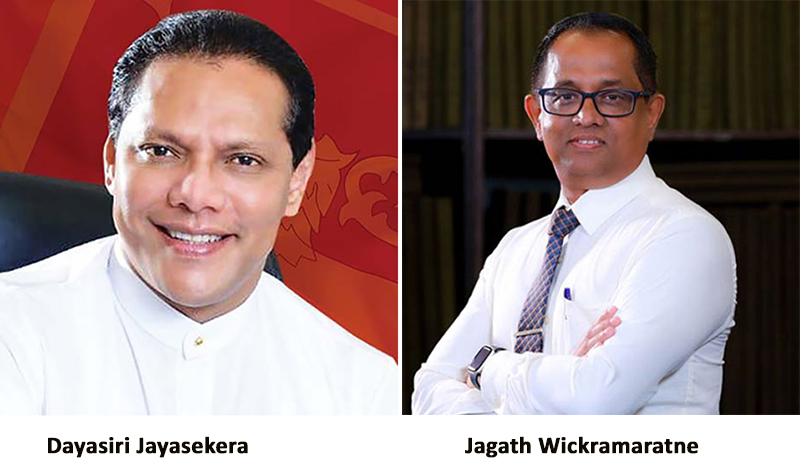
Dayasiri questions legitimacy of appointments made by Council
The Constitutional Council (CC) should ask its head, Speaker Dr. Jagath Wickramaratne, to step down temporarily pending an investigation by the Commission to Investigate Allegations of Bribery or Corruption (CIABOC) into a complaint lodged by sacked Deputy Secretary General of Parliament Chaminda Kularatne, SJB MP Dayasiri Jayasekera has said.
Former Minister Jayasekera said so in response to The Island queries pertaining to Kularatne’s recent complaint to the CIABOC.
Jayasekera pointed out that the CC, which is responsible for key appointments, couldn’t afford to have a person under CIABOC investigation as its head. “We have never experienced a similar situation since the establishment of the CC in 2000,” the Kurunegala District lawmaker said.
Parliament introduced CC under the 17th Amendment to the Constitution. It was abolished in 2010, reinstated in 2015 through the 19th Amendment, then replaced by a Parliamentary Council in 2020, and reintroduced via the 21st Amendment in October 2022.
MP Jayasekera said that the NPP government had turned a blind eye to his recent request made in Parliament for the Speaker to step down. He said that subsequently he had discussed the issue with other MPs and they were of the view that Dr. Wickramaratne’s continuation as the Chairman of the CC undermined the integrity of the council.
A parliamentary committee headed by Dr. Wickramaratne sacked Kularatne on January 23 over alleged irregularities pertaining to his appointment as Deputy Secretary General of Parliament and Chief of Staff. Kularatne lodged the complaint with the CIABOC on 2 February.
Austin Fernando, Professor Wasantha Seneviratne and Ranjith Ariyaratne were appointed as non-Members of Parliament to the CC on 23 January, the day Parliament sacked Kularatne.
MP Jayasekera said that the CC should discuss the issue with the Speaker. Political parties represented in parliament should intervene to ensure that the controversy over the Speaker’s conduct didn’t undermine the apex body.
The CC consists of Prime Minister Dr. Harini Amarasuriya (Ex-officio), Speaker Dr. Jagath Wickramaratne (Ex-officio), Leader of the Opposition Sajith Premadasa (Ex-officio), one MP appointed by the President (Bimal Rathnayake), five persons appointed by the President, upon being nominated as follows: one MP nominated by agreement of the majority of the Members of Parliament representing the Government (Aboobucker Athambawa, M.P), one MP nominated by agreement of the majority of the MPs of the political party or independent group to which the Leader of the Opposition belongs—Ajith P. Perera—and three persons nominated by the Speaker by agreement of the Prime Minister and the Leader of the Opposition—Austin Fernando, Professor Wasantha Seneviratne and Ranjith Ariyaratne—and one MP nominated by agreement of the MPs other than those representing the Government and those belonging to the political party or independent group to which the Leader of the Opposition belongs, and appointed by the President (Sivagnanam Shritharan, M.P).
The CC recommend nominations to the President for the appointment of Chairpersons and Members of Election Commission, Public Service Commission, National Police Commission, Audit Service Commission, Human Rights Commission of Sri Lanka, Commission to Investigate Allegations of Bribery or Corruption, Finance Commission, Delimitation Commission and National Procurement Commission.
Jayasekera asked how Dr. Wickramaratne could continue as CC head as appointments to CIABOC, too, are made by the 10-member body.
The CC also approve/disapprove recommendations by the President for the appointment Chief Justice and the Judges of the Supreme Court, President and the Judges of the Court of Appeal, Members of the Judicial Service Commission, other than the Chairman, Attorney-General, Governor of the Central Bank of Sri Lanka, Auditor-General, Inspector-General of Police, Parliamentary Commissioner for Administration (Ombudsman) and Secretary General of Parliament.
MP Jayasekera said that it would be really interesting to see the response of the newly appointed civil society members to the developing situation. The SJBer pointed out that the recent appointment of Samudika Jayaratne, a Senior Deputy Auditor General as the Auditor General was made after Kularatne moved the CIABOC against the Speaker.
The JVP and NPP, having preached other political parties of transparency, couldn’t pretend the Speaker’s issue was not serious. Dr. Wickramaratne was appointed Speaker in Dec 2024 after Asoka Ranwala had to step down after being exposed for making false higher education qualifications.
by Shamindra Ferdinando
News
Auditor General urged to probe coal scam
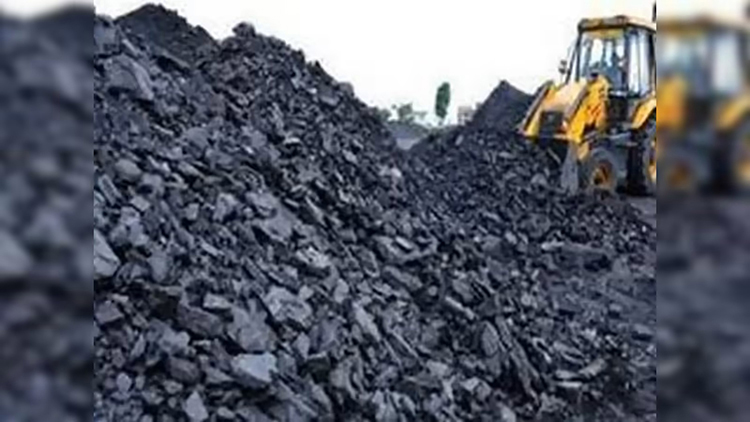
The Electricity Consumers’ Association (ECA) Friday (6) called on newly appointed Auditor General Samudika Jayarathne to begin her tenure by launching an investigation into the controversial coal procurement deal, which has drawn widespread public criticism.
Addressing a media briefing in Marandagahamula, Gampaha, ECA Secretary, Sanjeewa Dhammika, said the probe should be conducted independently. The appointment of a new Auditor General, following a vacancy of nearly six to seven months, was a crucial step in restoring the effectiveness of the state audit system, he said, extending congratulations to Jayarathne.
Dhammika urged the Auditor General to carry out a swift, independent investigation into the questionable coal procurement deals, alleging that they had caused significant economic and environmental harm to the country.
He called for the findings of such an investigation to be disclosed to the public as a priority.
He also called for an immediate audit of Lanka Transformer Ltd, which has faced severe criticism from the Committee on Public Enterprises (COPE). Dhammika said the audit should reveal details of alleged irregularities, identify those responsible, and disclose any misuse of public funds.
Noting that the government held a substantial share in Lanka Transformer Ltd, he stressed that the matter constituted a direct responsibility of the State.
“The audit system should not function to provide political protection, but to safeguard public funds,” Dhammika said, adding that the Association expected the new Auditor General to uphold this principle.
By Anuradha Hiripitiyage
News
First-ever monkey holding centre to be set up in Matale
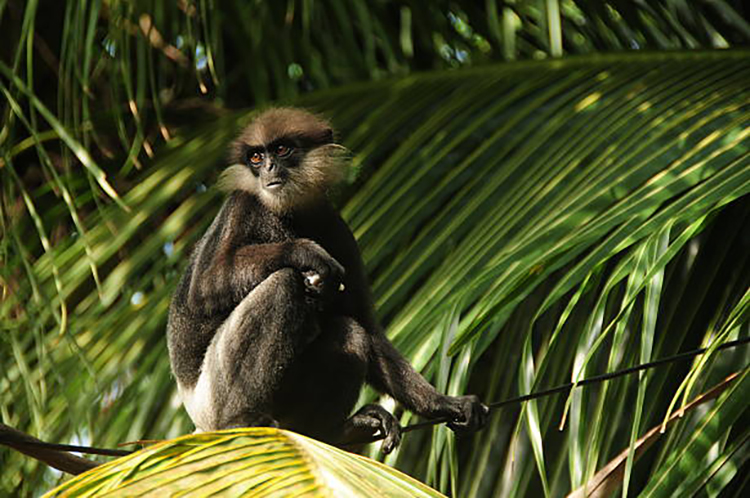
A 150-hectare site near the Kalu Ganga Reservoir in Matale District has been earmarked for Sri Lanka’s first-ever holding centre for Toque Macaques, the Department of Wildlife Conservation (DWC) announced.
The centre will feature water, food, and security facilities, providing a safe environment to manage macaques that cause damage in nearby communities. The Matale District Development Committee has approved the project, following a recommendation from the DWC.
Wildlife Range Officer Chamath Lakshman Perera told the Committee that similar holding centres operate in several countries, including Malaysia. A total of Rs. 283.87 million has been allocated for the project.
Under the plan, macaques causing destruction will be captured and relocated to the centre. Population control measures will include fitting loops on female monkeys to prevent breeding. The facility will be secured to ensure the animals cannot escape back into the wild.
Officials said the site has sufficient natural food sources, but additional supplies will be provided if necessary. Each macaque is expected to require around 70 grams of food per day.
The project aims to balance wildlife conservation with community protection, offering a model for managing human-macaque conflicts in the country, Perera said.
by Nimal Gunathilake
-

 Features1 day ago
Features1 day agoMy experience in turning around the Merchant Bank of Sri Lanka (MBSL) – Episode 3
-

 Business2 days ago
Business2 days agoZone24x7 enters 2026 with strong momentum, reinforcing its role as an enterprise AI and automation partner
-

 Business6 days ago
Business6 days agoSLIM-Kantar People’s Awards 2026 to recognise Sri Lanka’s most trusted brands and personalities
-

 Business1 day ago
Business1 day agoRemotely conducted Business Forum in Paris attracts reputed French companies
-

 Business1 day ago
Business1 day agoFour runs, a thousand dreams: How a small-town school bowled its way into the record books
-
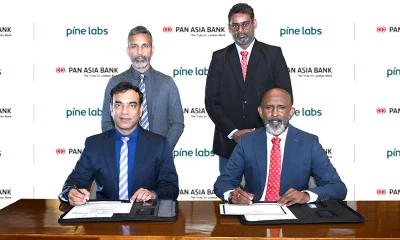
 Business6 days ago
Business6 days agoAPI-first card issuing and processing platform for Pan Asia Bank
-

 Business2 days ago
Business2 days agoHNB recognized among Top 10 Best Employers of 2025 at the EFC National Best Employer Awards
-

 Business2 days ago
Business2 days agoGREAT 2025–2030: Sri Lanka’s Green ambition meets a grid reality check













